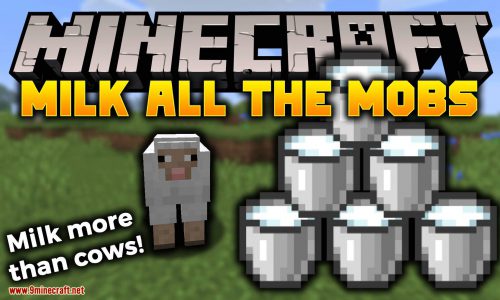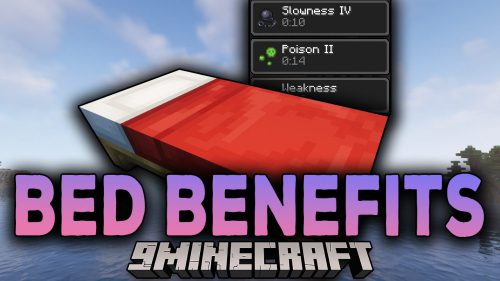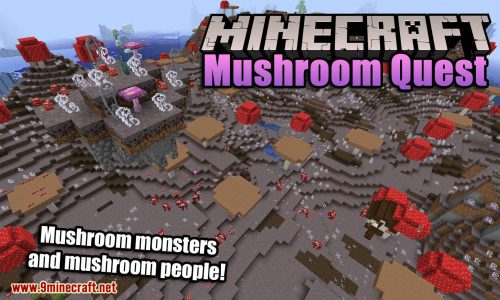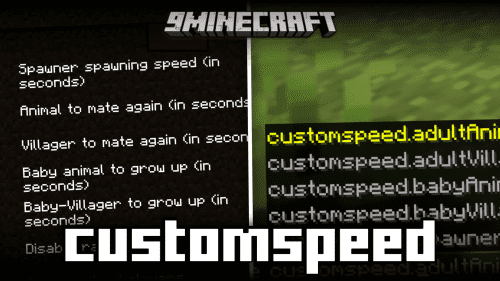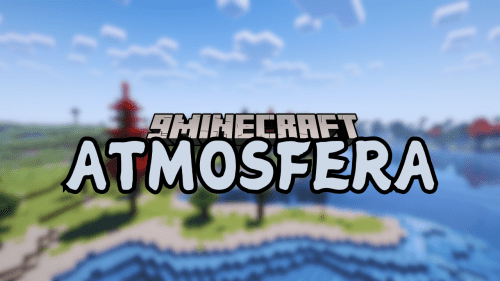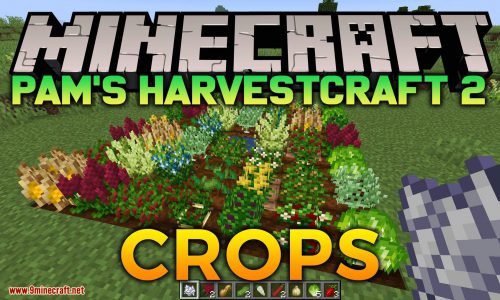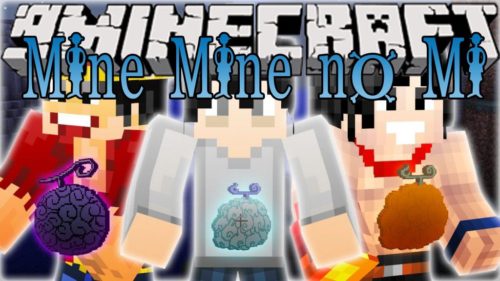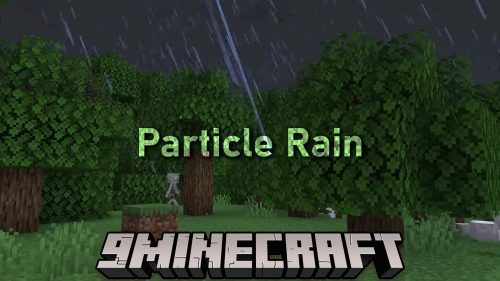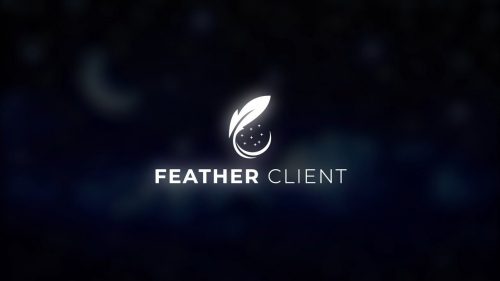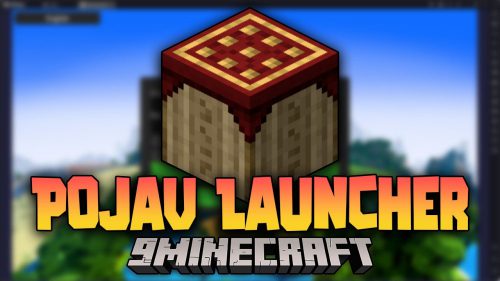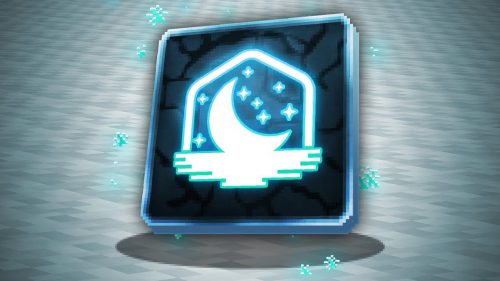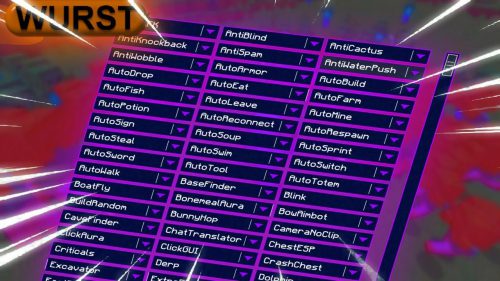Genetic Animals Mod (1.20.1, 1.18.2) – Better Looking Models for Animals
Genetic Animals Mod (1.20.1, 1.18.2) does a few things: It adds better-looking models that still give the Minecraft feel but are also dynamic and can change from animal to animal and even over time. It adds hunger mechanics so that your starving animals can no longer provide resources, Animals won’t give birth if starving, their milk will run dry, they stop laying and stop growing wool without food, etc. On the plus side, your animals can eat a lot of different things and can graze on grass and hay blocks once the binding is cut, pigs can even feed on stuff they find in the dirt and turn the soil up into farmland for you. Most importantly this mod adds real genetics, if you breed two animals together their offspring is a product of their parent’s genes and each animal’s variations in size, color, shape, meat drops, leather drops, egg colors, wool production, milk production and more are determined by their genes rather than random chance. So anything you see you can breed for. you can even combine attributes of different animals into one line that have all your favorite parts which are called a breed. You can even recreate real-life breeds and then cross them together to see the result and it will be as accurate to life as we can manage. Animals in the wild also vary by biome type, so explore for more variety.
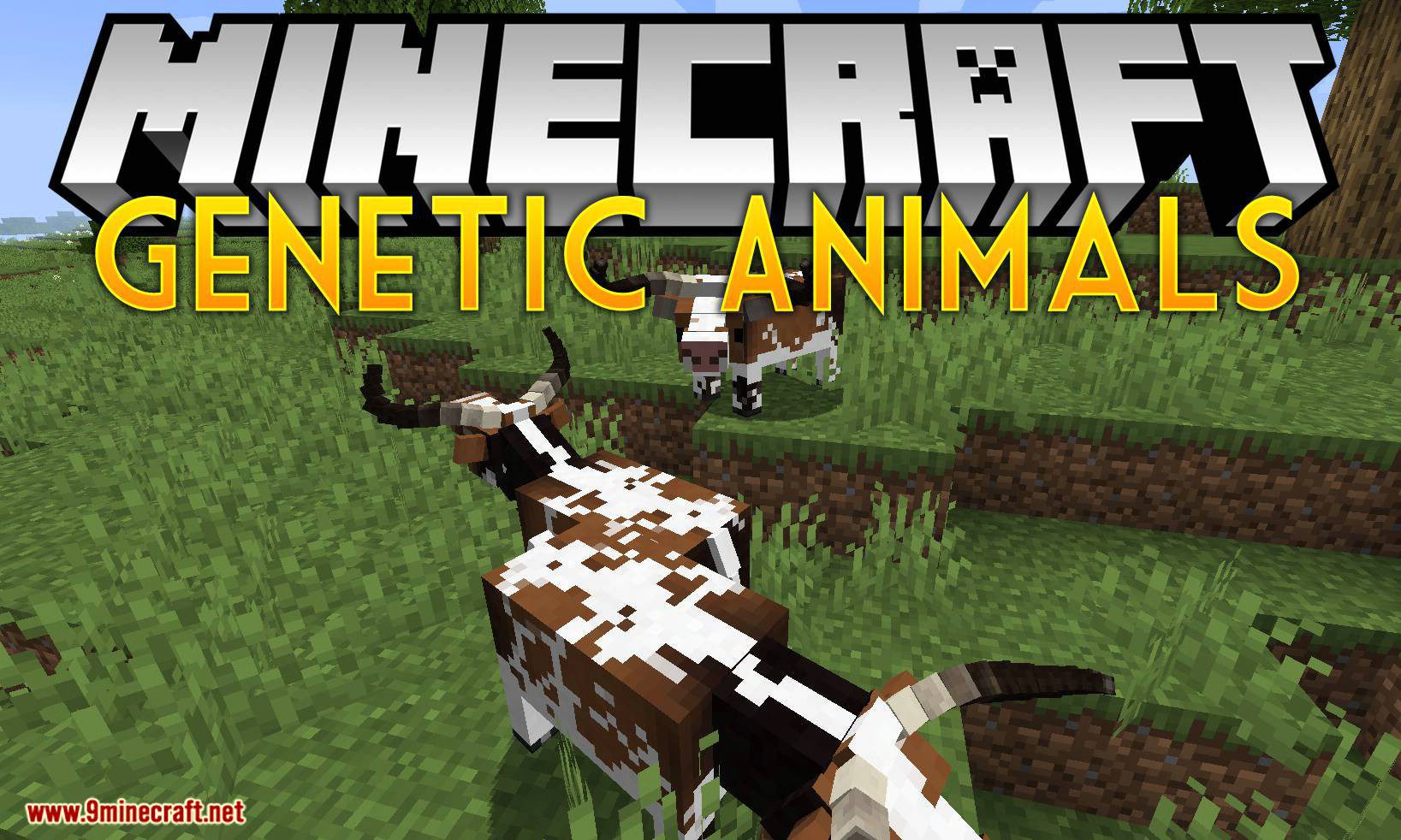
Features:
Blocks:
- Unbound Hay Block: Feeds animals up to 9 times.
- Egg Carton: A portable storage block that can hold 16 eggs.
- Post Block: A decorative block, chickens use them as a perch.
- Patchy Grass: An interim of Grass Block and Dirt Block to improve the appearance of grazed fields.
- Patchy Mycelium: An interim of Mycelium Block and Dirt Block to improve the appearance of grazed mushroom fields.
- Growing Plants: Variants of grass and flowers that allow animals to continuously graze. If given enough time between grazing periods, these plants will regrow. A plant will automatically convert into its growing variant once an animal begins eating it.
Items:
- Eggs: Currently comes in 271 color varieties, each chicken lays a particular color of egg based on their genetics.
- Raw Chicken: now comes in three sizes and two colors, including the vanilla raw chicken.
- Raw Rabbit: now comes in two sizes, including vanilla raw rabbit and a smaller sized raw rabbit.
- Milk: comes in six different bucket volumes and two bottle volumes. In the future this will be replaced with a dynamic bucket.
- Weak Rabbit Stew: a watery rabbit stew crafted using small raw rabbit.
- Spawn Eggs: only obtainable via creative mode or commands. Used to spawn genetic animals into the world on demand.
- Debug Gene Book: only obtainable via creative mode or commands. Used to copy an animal’s genetic data for the purpose of reporting bugs.
Animal Equipment Items:
- Many of the animal equipment items are RGB dyeable like the vanilla leather armor and horse armor. Most are only obtainable from villager trades except for basic collars and bridles. All animals in the mod can wear collars.
- Collars: Several dyeable collars in both cloth and leather variants. Each variant also has an iron, gold, and diamond ornamented variety.
- Bridles: Dyeable bridles in cloth and leather variants. Each variant also has a gold, and diamond ornamented variety. Allows you steer animals you are riding.
- Saddles: Come in vanilla, western or english styles with various combinations of cloth and leather with iron, gold, diamond, or wood hardware, all versions are dyeable in the same way as leather horse armor.
- Name Tags: Can be applied to an animal to give them a name. When applied before breeding, the name will be shown in the offspring’s GUI.
- Carpets: Vanilla carpets can be applied to llamas, cows, and pigs to apply decoration nearly identically to the vanilla llama decoration.
Animals:
- Unlike vanilla animals Genetic Animals graze for food, have pregnancies, and slowly change shape and size as they grow. Some young animals will also have baby coats that change dynamically as they age. Each animal still has the same breeding items but can also eat a myriad of suitable foods to fill their hunger bar. Genetic Animals will also sleep at night and they will seek shelter from the rain and midday sun. While sleeping or resting Genetic Animals will lose hunger more slowly while restoring their health. Genetic Animals all have their own GUI where you can crouch + right click to view their name, age, parent names (if parents were named before breeding), gender, hunger, health and pregnancy status.
- Cows: Cows breed with wheat, but they will also happily eat melon, pumpkin, grasses, vines, oak leaves, carrots, apples, sugar, wheat, and hay to satisfy their hunger. They have one calf at a time and make up to five buckets of milk after birth. Cows have an incalculable number of heritable horn variations, some are quite interesting. Cows can be used for riding and as a pack animal.
- Sheep: Sheep breed with wheat, but will also eat grass, tall grass, melon, pumpkin, vine, hay bale, carrot, rose bush, dandelion, apple, sugar. Sheep give birth to 1 – 4 lambs at a time and make up to one bucket of milk per day after birth. Some sheep are hair sheep which do not make wool but instead drop leather, while other sheep are wool sheep. Some wool sheep will make almost no wool while others will make 3 blocks of wool per day. Sheep are more visibly fluffy the woollier they are, and the bigger the wool is, the more the fleece jiggles.
- Pigs: Pigs breed with carrots, beetroot, or potato. When bred they have 1 to 15 piglets. Pigs are a neutral mob that will attack if provoked. They can be equipped with saddles and chests but can not be equipped with bridles to steer them with so must be directed with a carrot on a stick. Pigs take 2.5 days to grow from a newborn piglet to an adult but will continue growing in size until they are five days old.
- Chickens: Chickens use any sort of seed to trigger breeding. Once bred (only female if omnigenders is set to false) chickens lay fertile eggs for a few days that may be hatched by throwing. Throwing eggs to hatch chickens will eventually be replaced by needing the eggs to be incubated by the player or a chicken. Chickens will eat any seeds, sweet berries, dandelions, melon slices, tall grass, grass, bread, eggs, and spider eyes to satisfy their hunger.
- Rabbits: Rabbits breed using a carrot or dandelion. A litter of rabbits can be anywhere from just one to as many as thirteen. Rabbits can be fed grass, tall grass, carrots, sweet berries, dandelions, and rose bushes. Some rabbits can grow a fleece and will appear much more fluffy than most rabbits. A rabbit with an enormous fleece will drop one white wool each time its sheared. The more fluffy the rabbit the more likely you are to get wool.
- Llamas: Llamas must be tamed and fed a hay bale each to trigger breeding. Llamas will only have one cria at a time. Their pregnancies last two minecraft days and the cria takes five days to mature. Llamas can be used as a pack animal but can also be used for riding. Some llamas will be fluffier and can be sheared for wool, it can take a few days for a llama to grow back their wool once sheared but they will have an interesting haircut while they grow their fleece. In addition to their breeding items llamas can be fed grass, tall grass, carrots, wheat, apples, or sugar as a treat.
- Sea Turtles: Sea turtles can be found in beach biomes with a few patterns and colors. Fully grown turtles can be bred using seagrass. Once bred, the female turtle will begin seeking out a spot on the beach she spawned on to lay her eggs. These can appear in clusters of up to four eggs. The eggs hatch using vanilla mechanics.
- Axolotls: Axolotls are an addition to Genetic Animals 1.17+! They can be found underground in Lush Caves like their vanilla counterparts. Genetic axolotls come in a wide variety of colors and patterns, and some may even carry traits allowing varying body sizes, different gill shapes, and the ability to glow.
Screenshots:
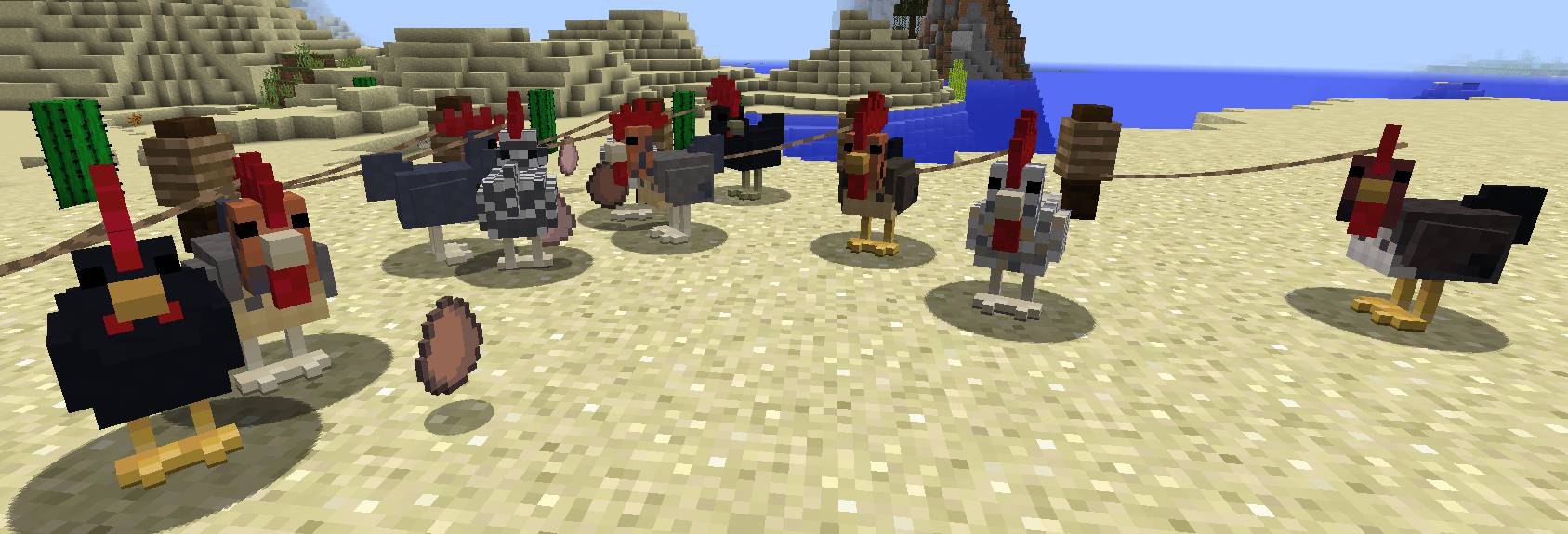
Some chickens
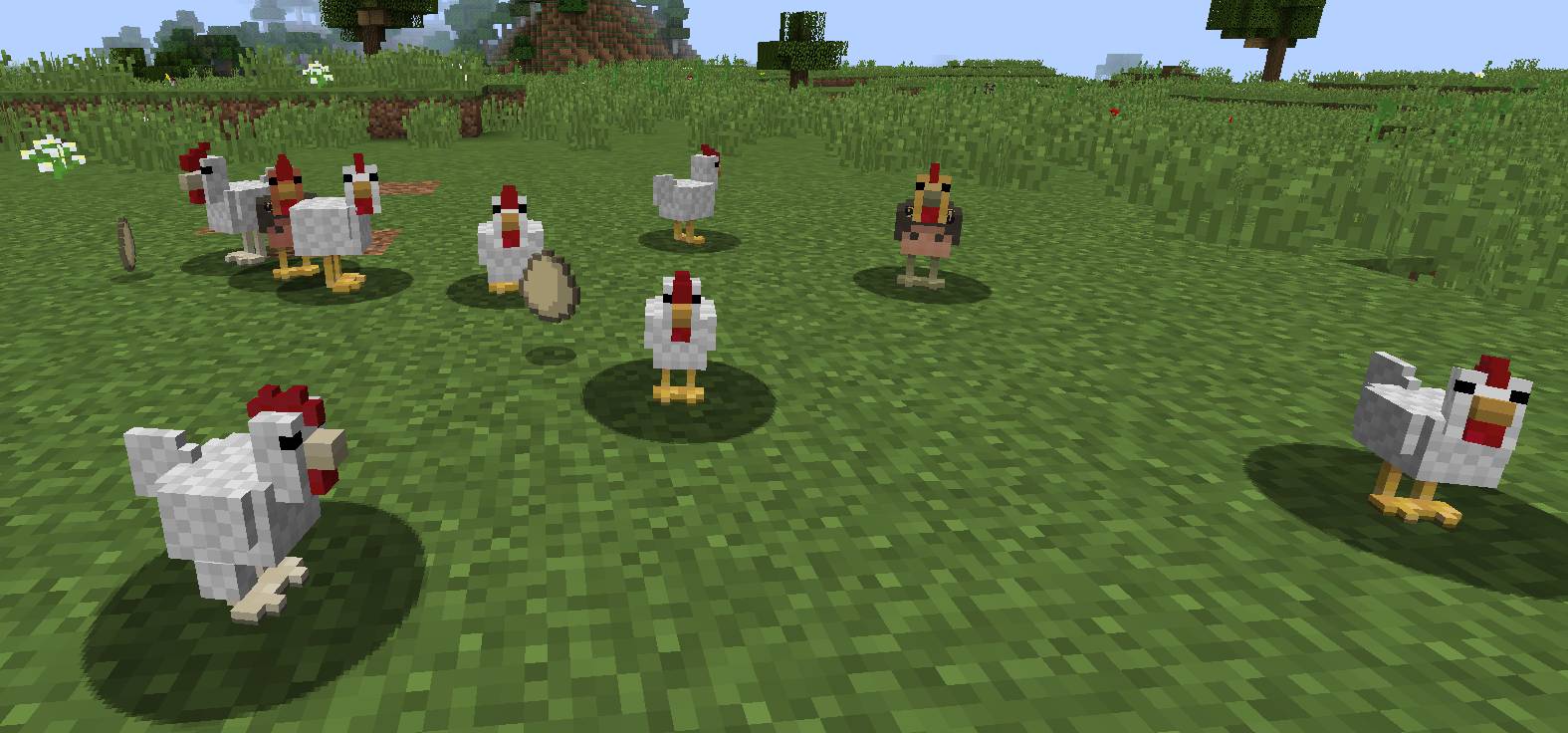
Grasslands_chickens: A sample of random grasslands chickens that have not yet been selectively bred.
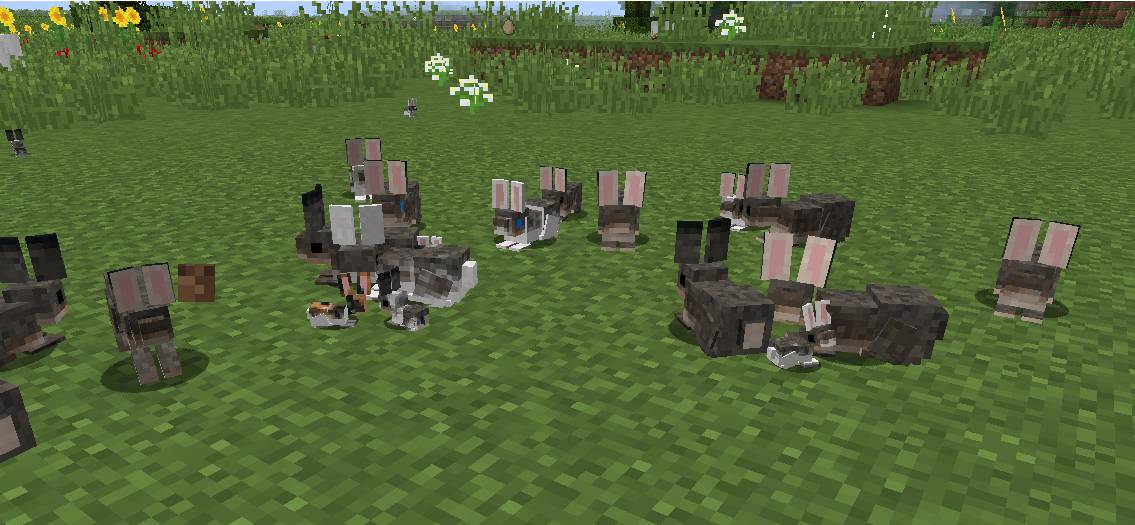
Normal and desert variety rabbits: a random assortment of non-cold biome rabbits. the extremely tiny ones are the babies but the others are just very small adults.
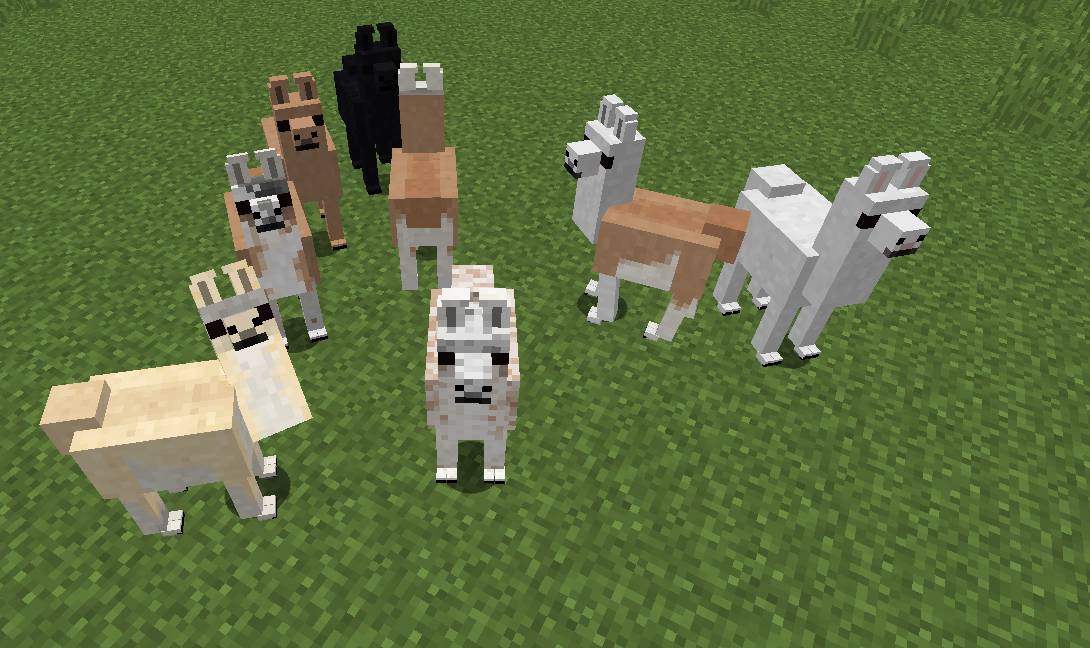
A normal assortment of llamas.
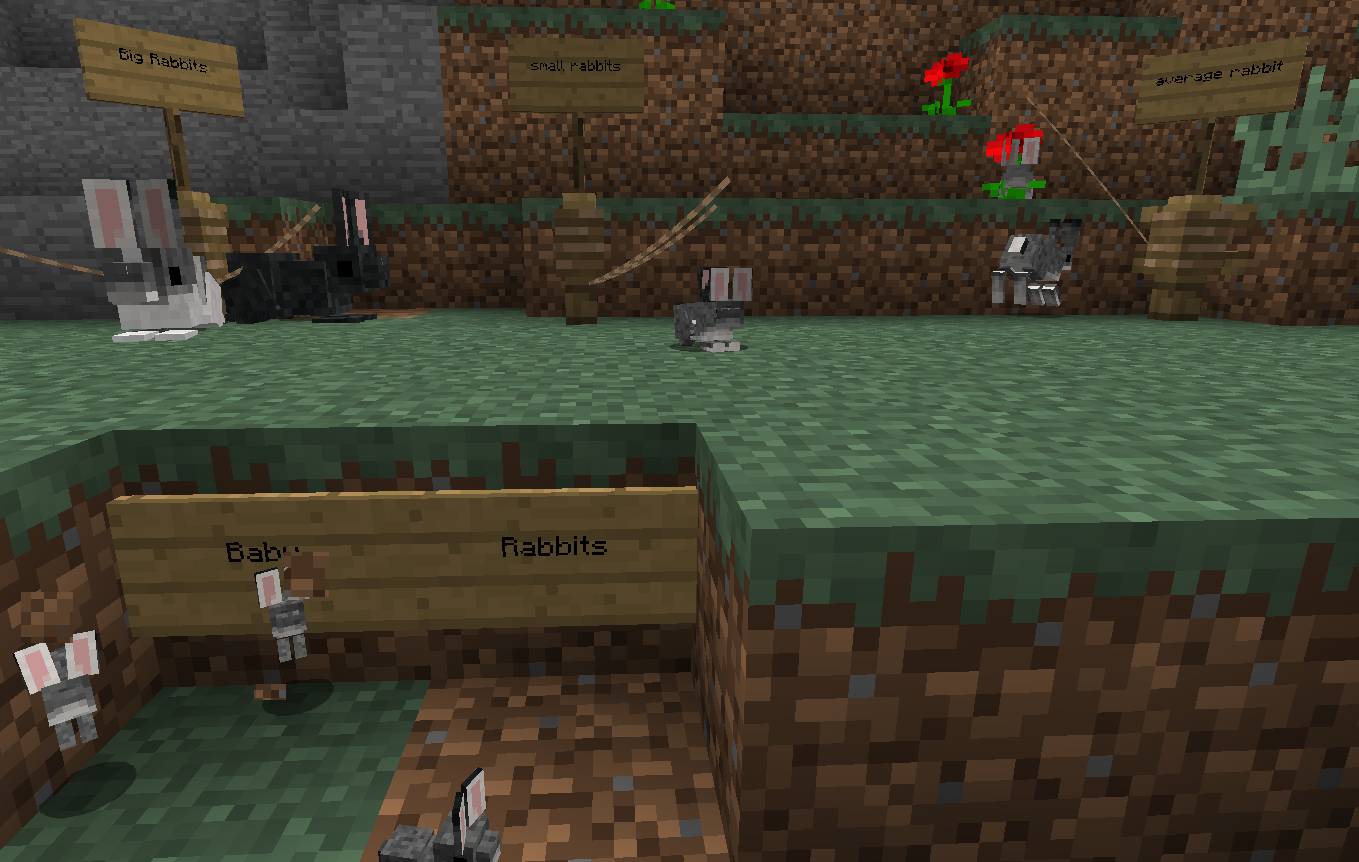
Rabbit Size Comparison: A comparison of the larger rabbits to some smaller ones as opposed to the tiny baby rabbits. Chickens have similar size diversity while Llamas are much more subtle.
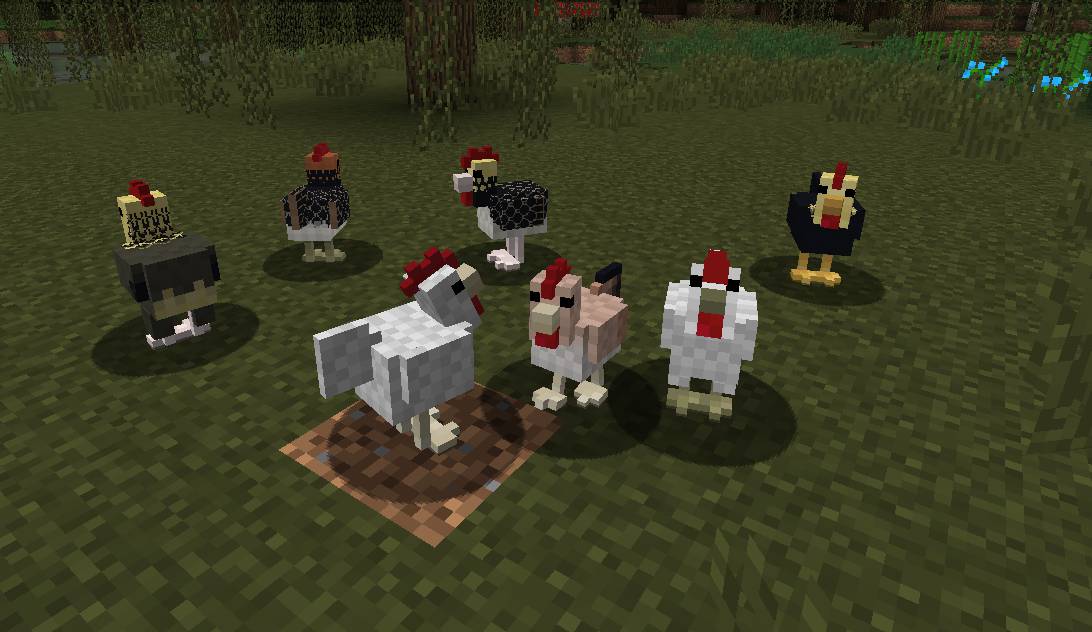
Marshland Chickens: These ones have a more diverse look than other biomes. They also tend to lay blue or green eggs.
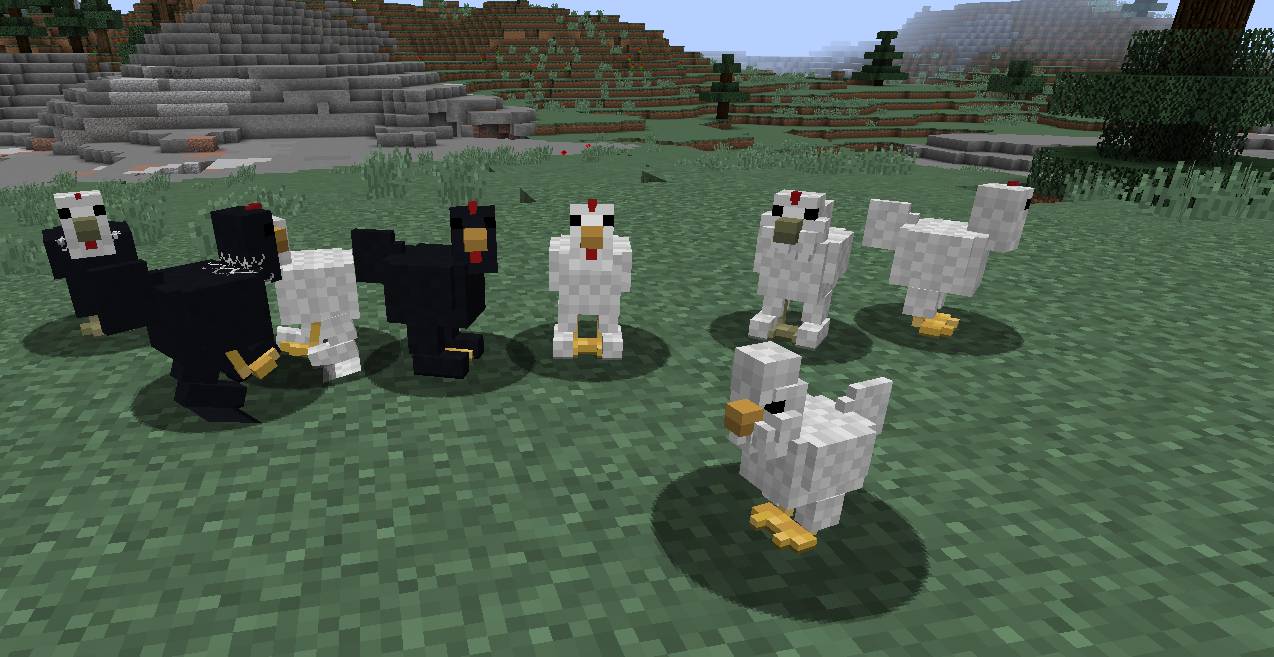
Cold Biome Chickens: Cold biome chickens tend to have feathered legs, crests, and beards. they are also usually based on black feathers with a silver base.
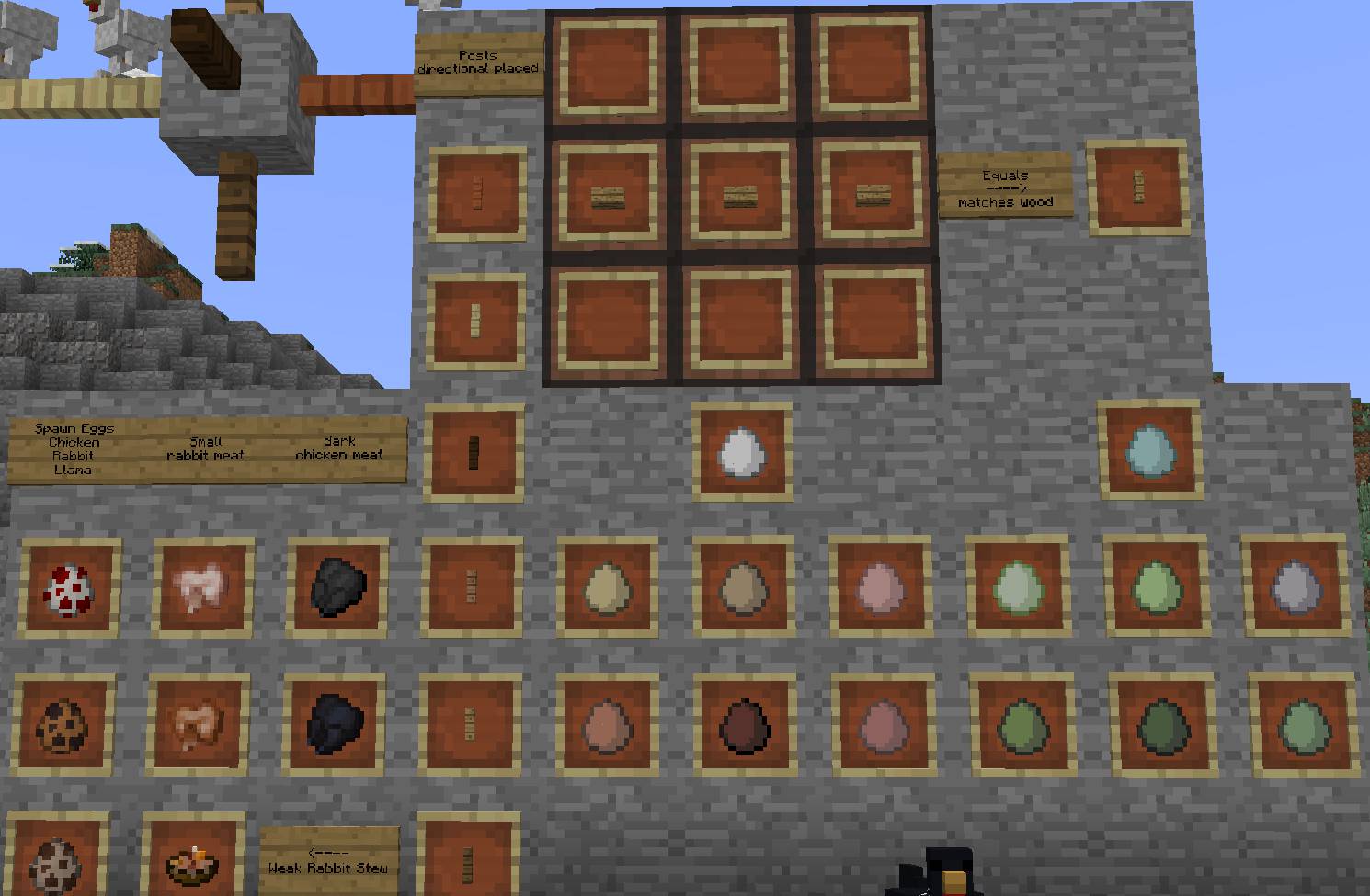
All items added so far: 14 egg colors 3 chicken meat sizes in 2 different colors small size rabbit meat cooked meats and stews are weakened to match spawn eggs and posts for making roosts for your chicken coop. chickens will be drawn to them at night.
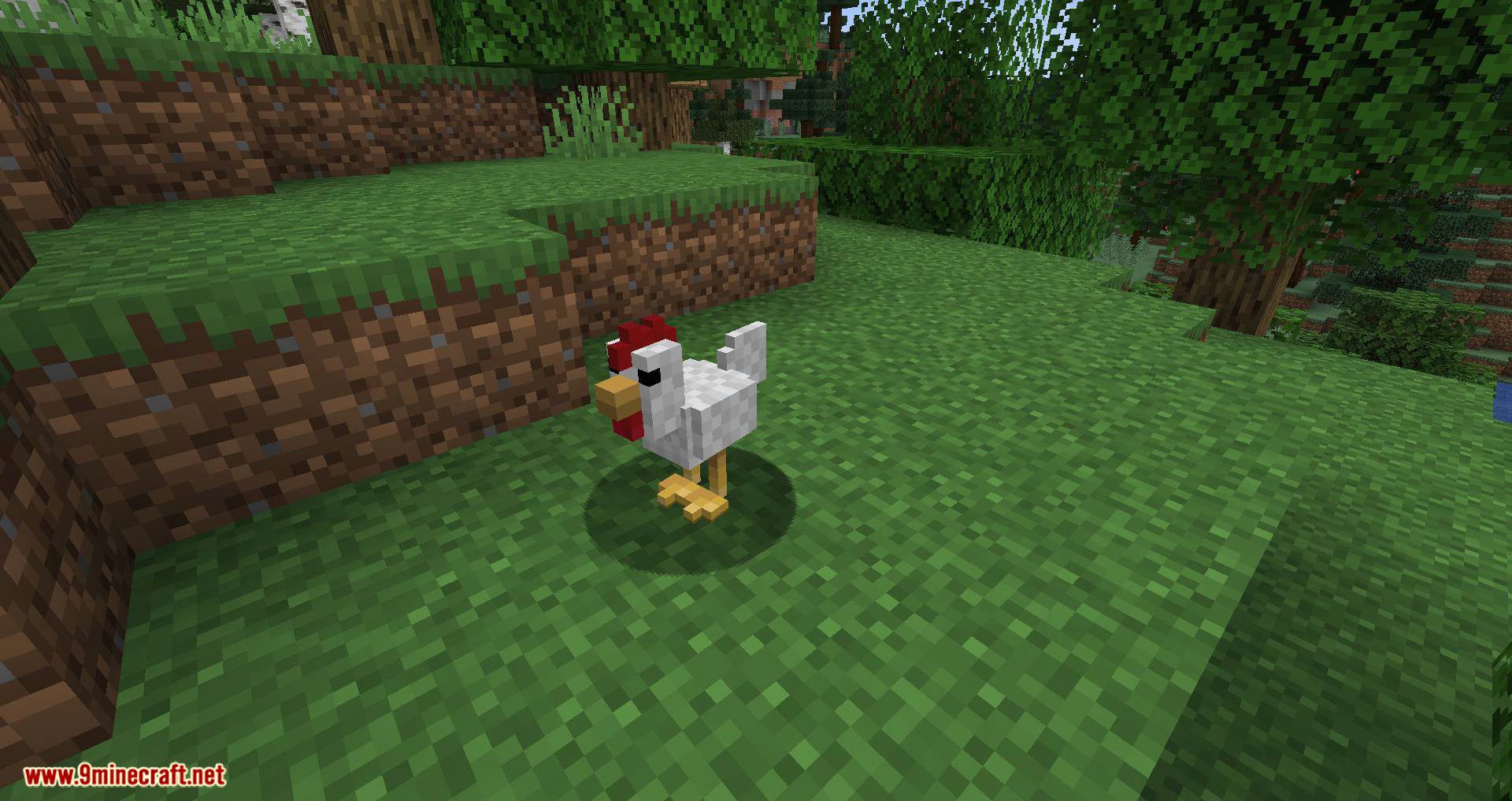
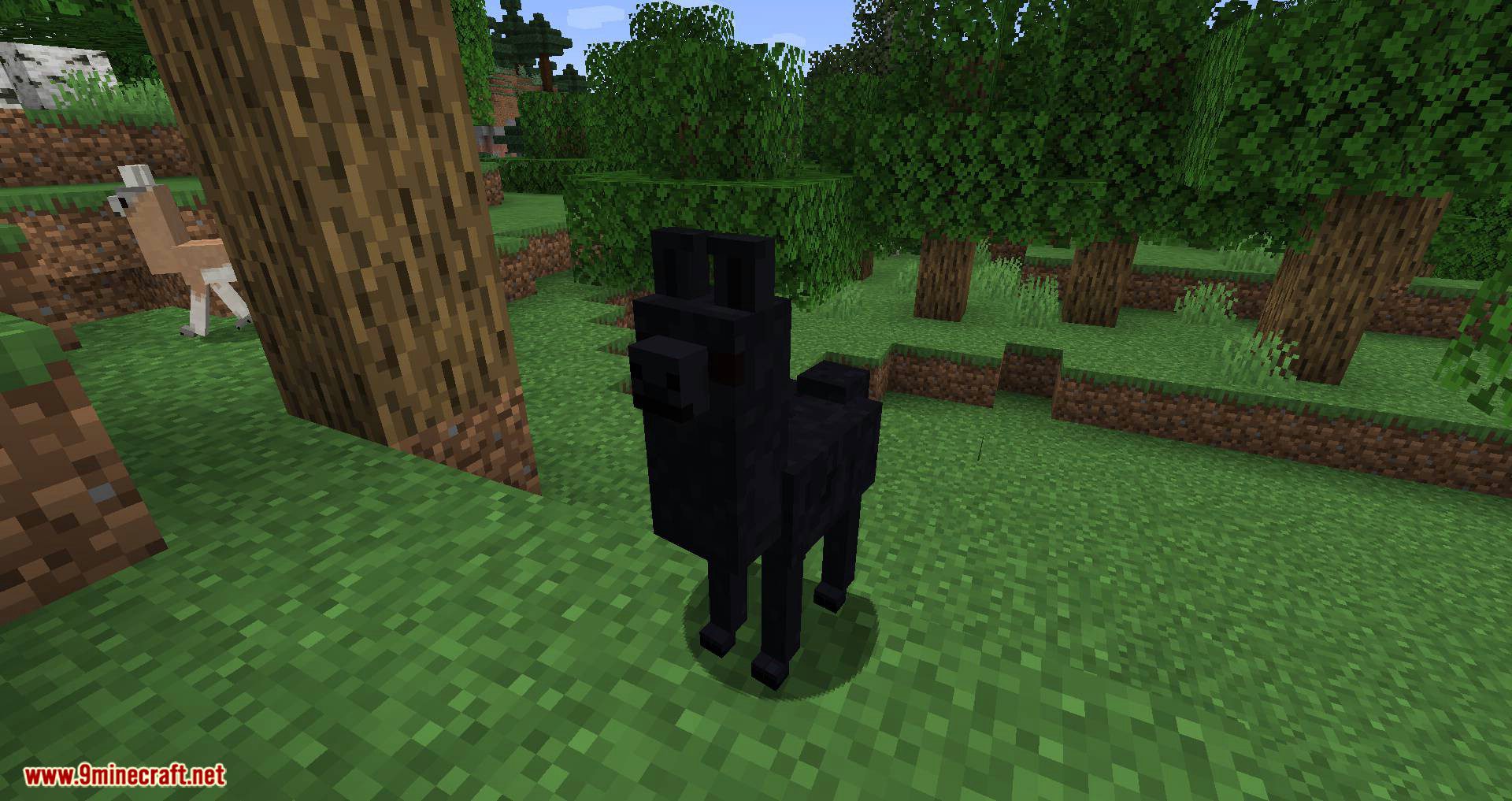
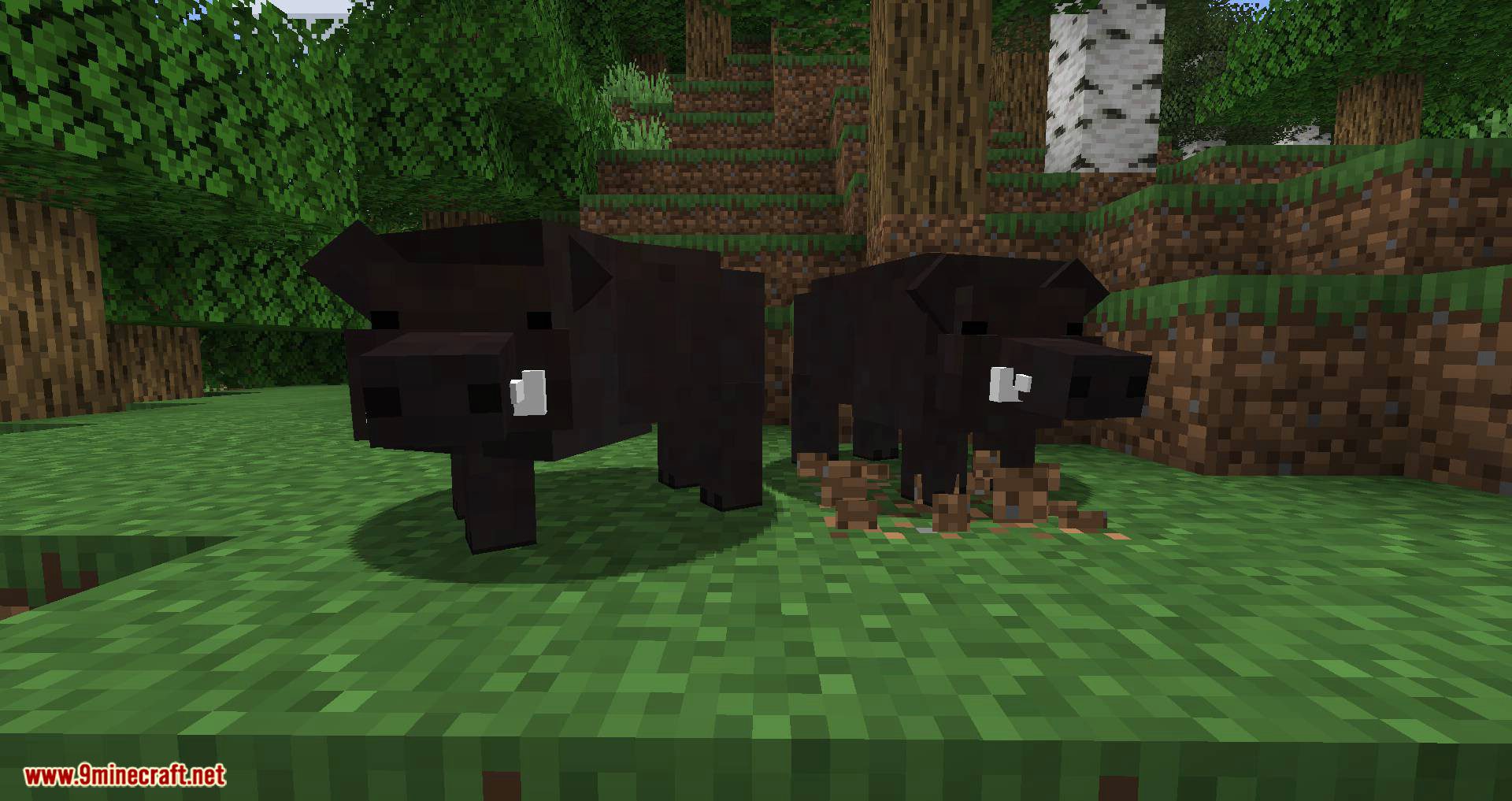
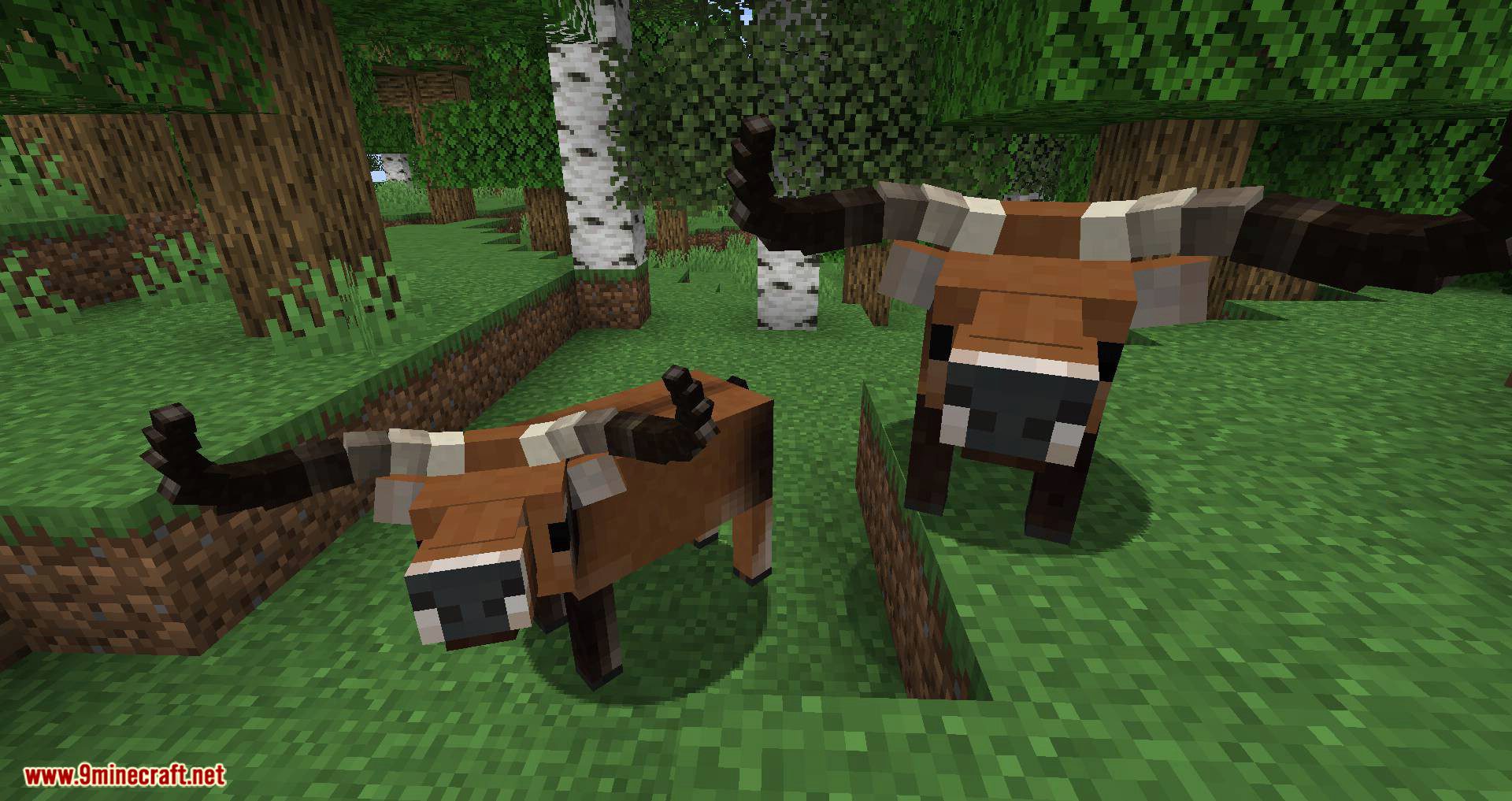
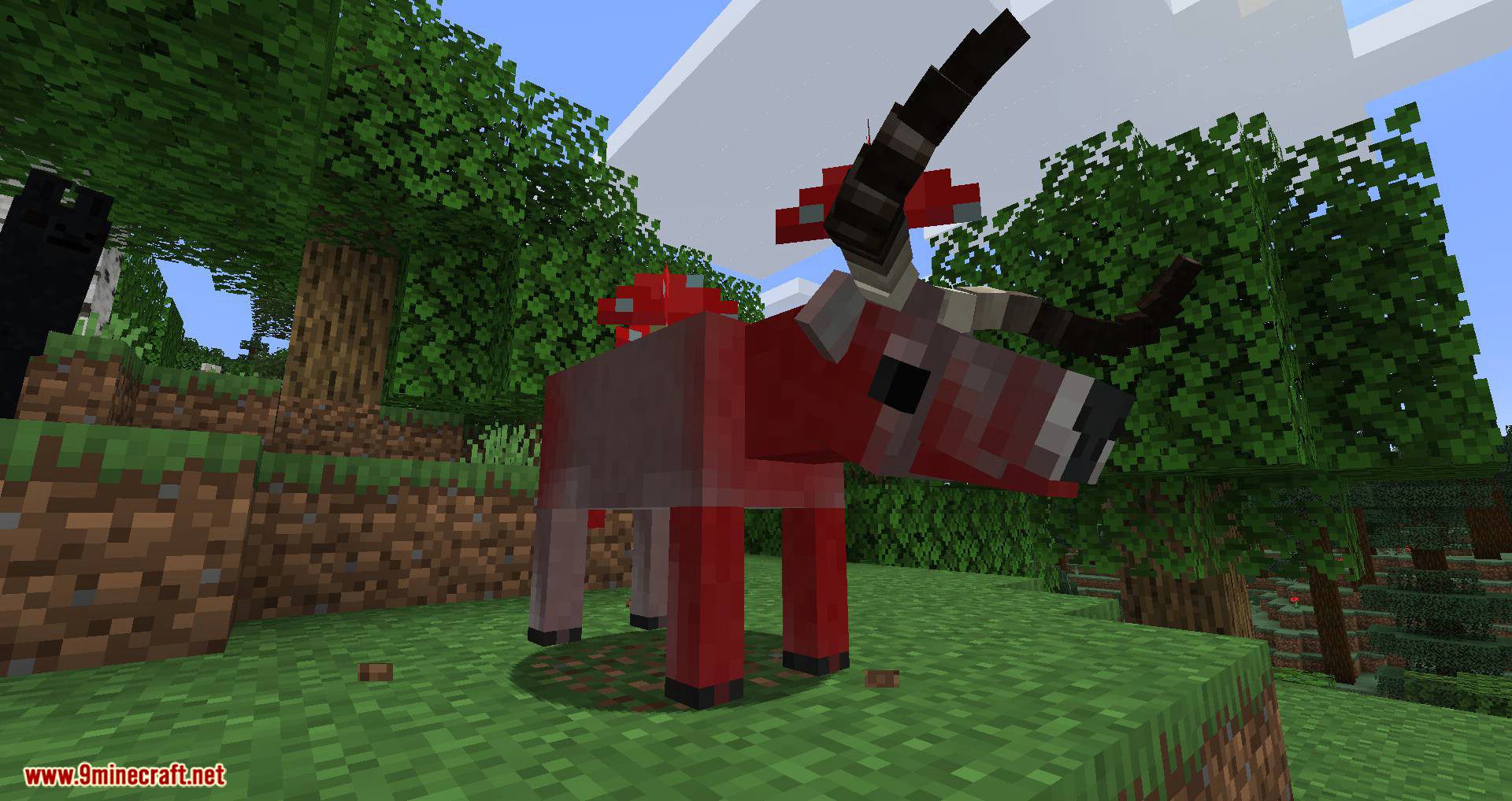
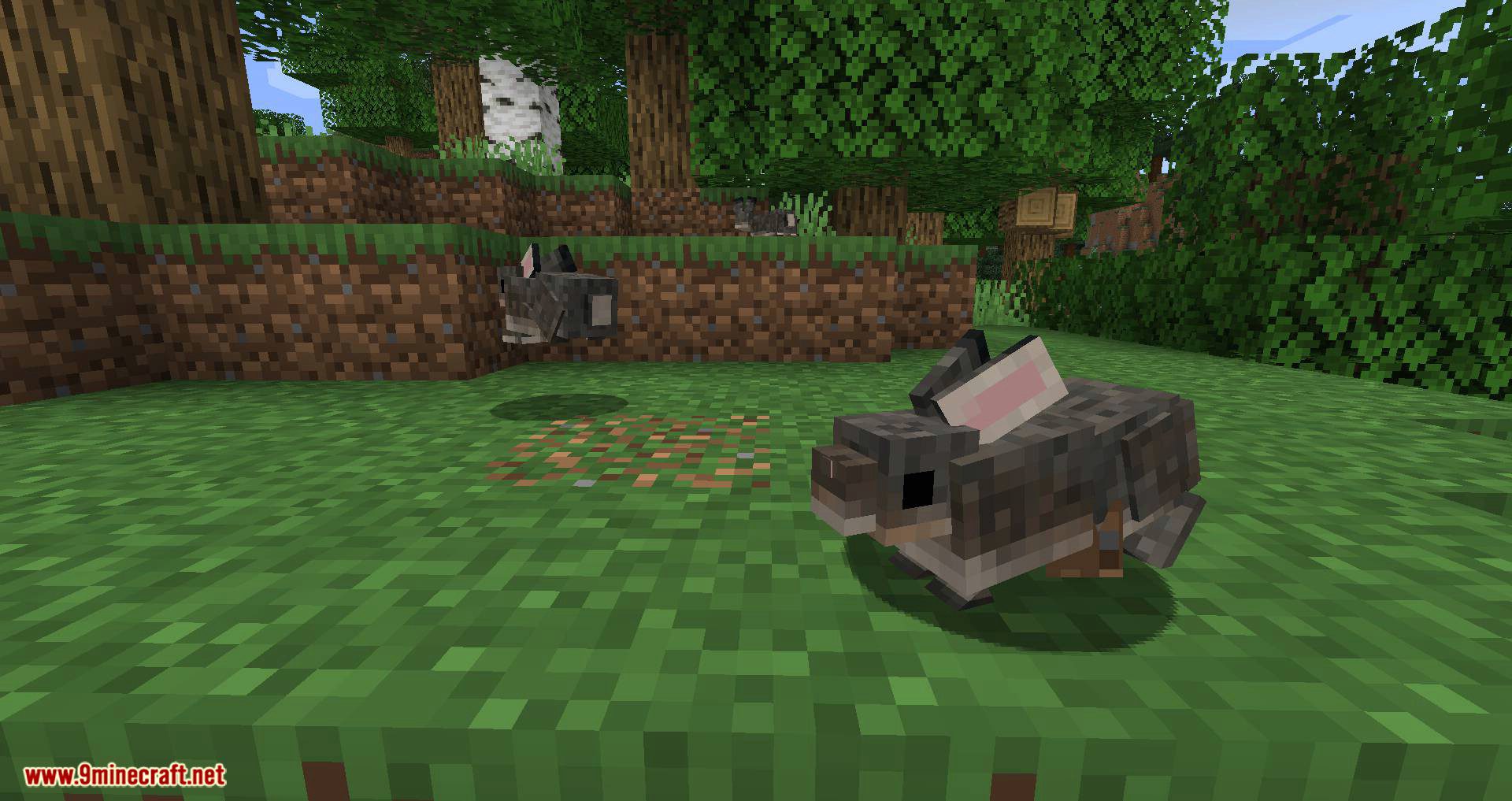
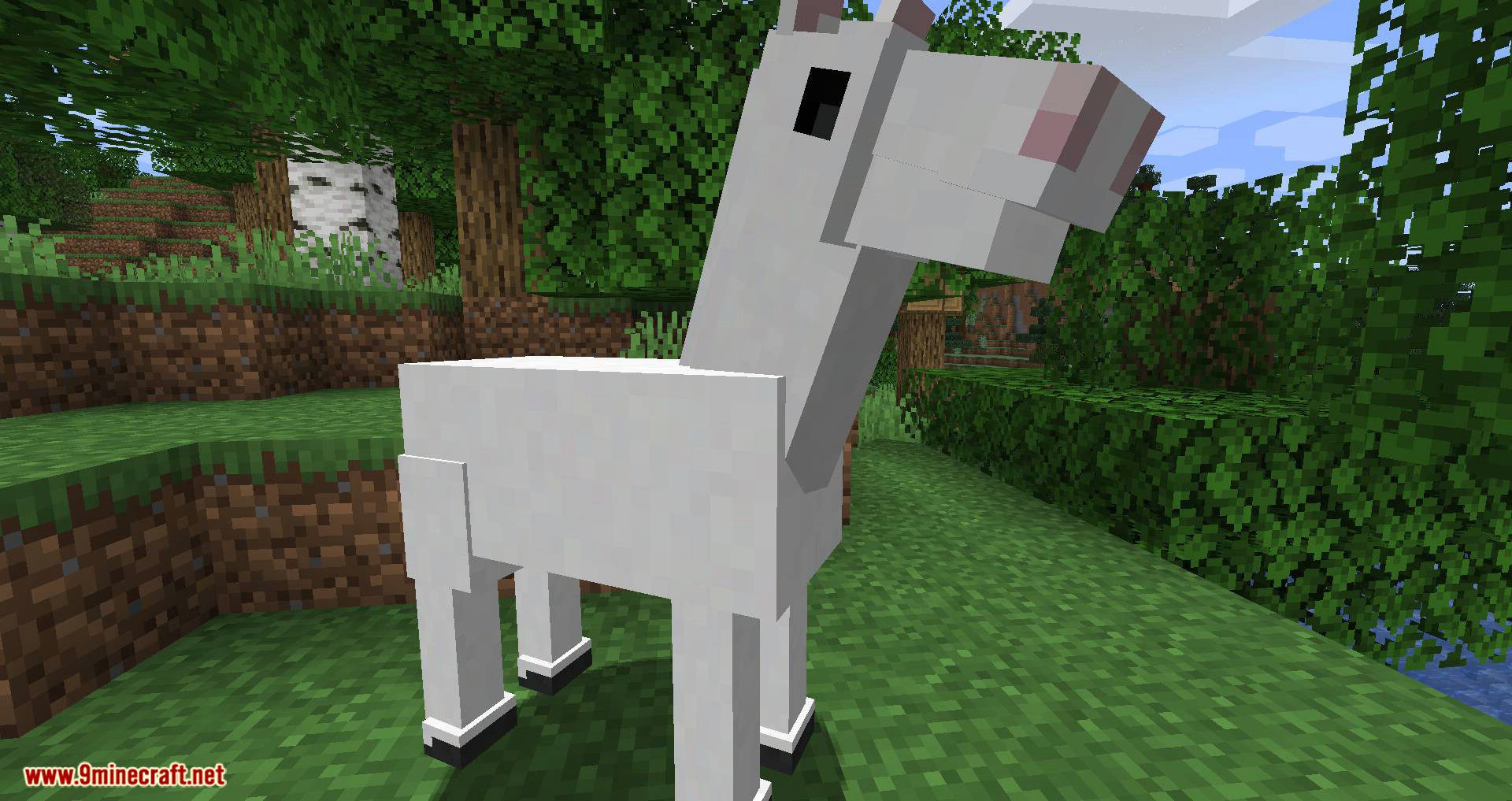
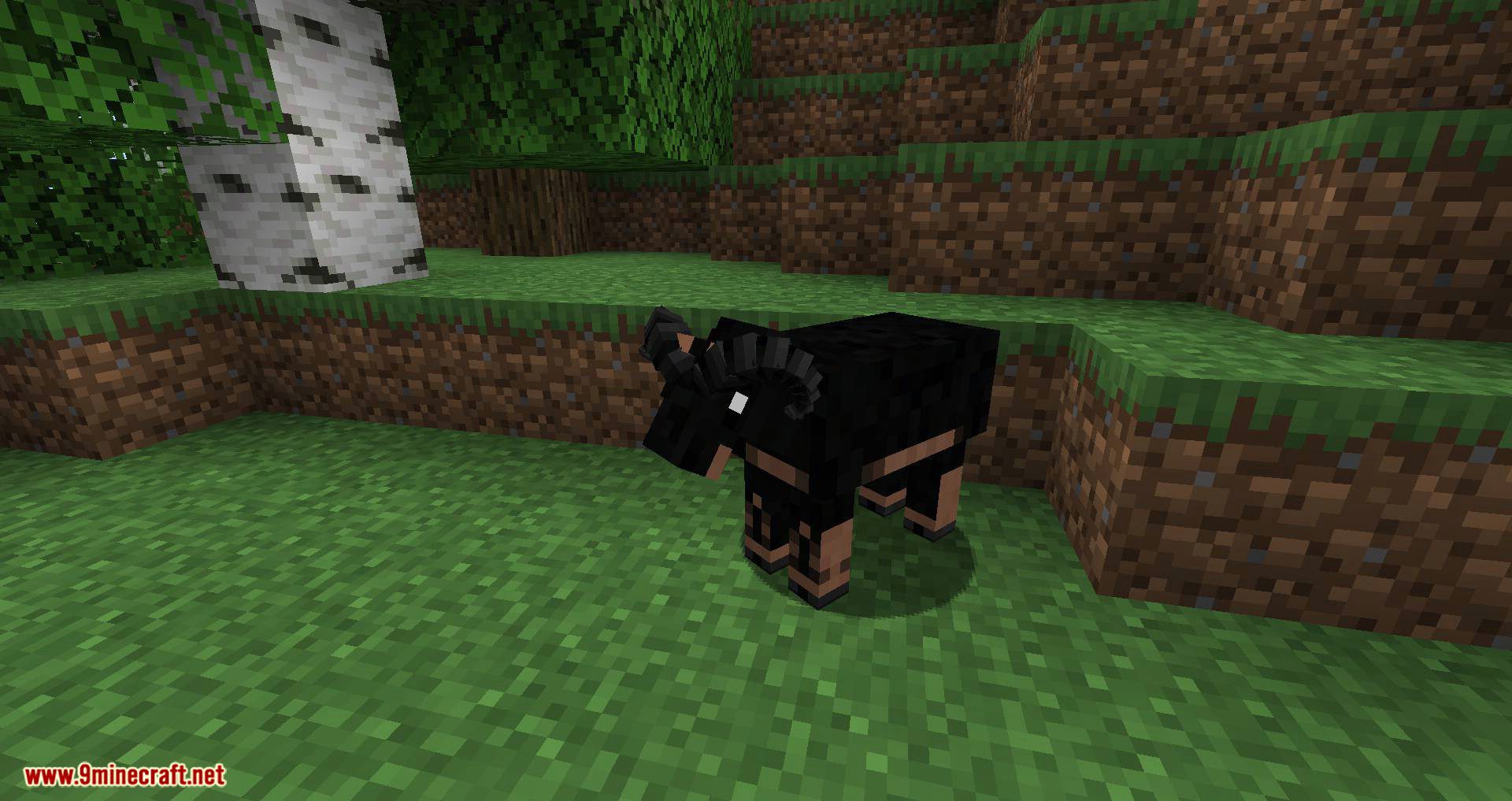
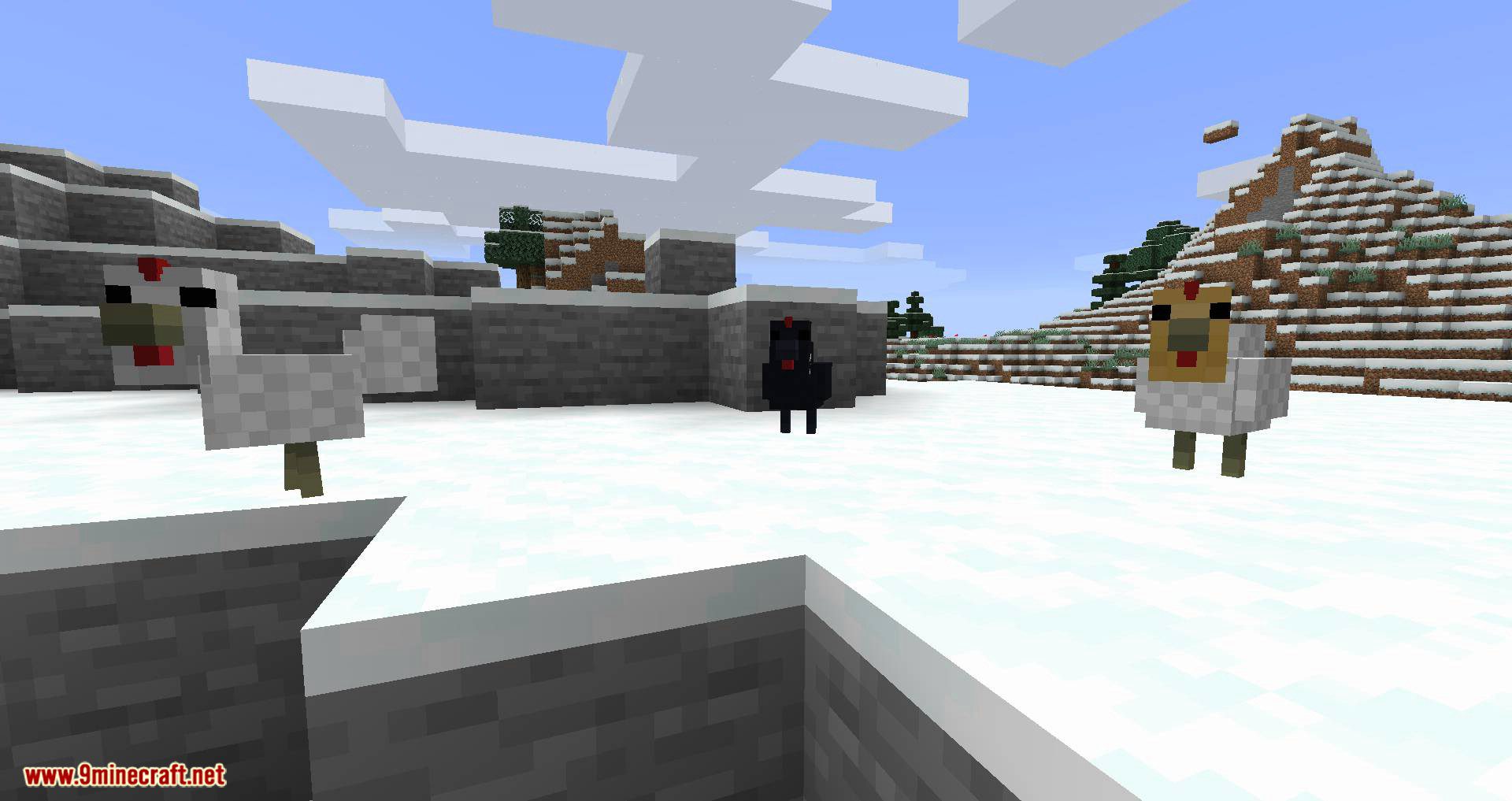
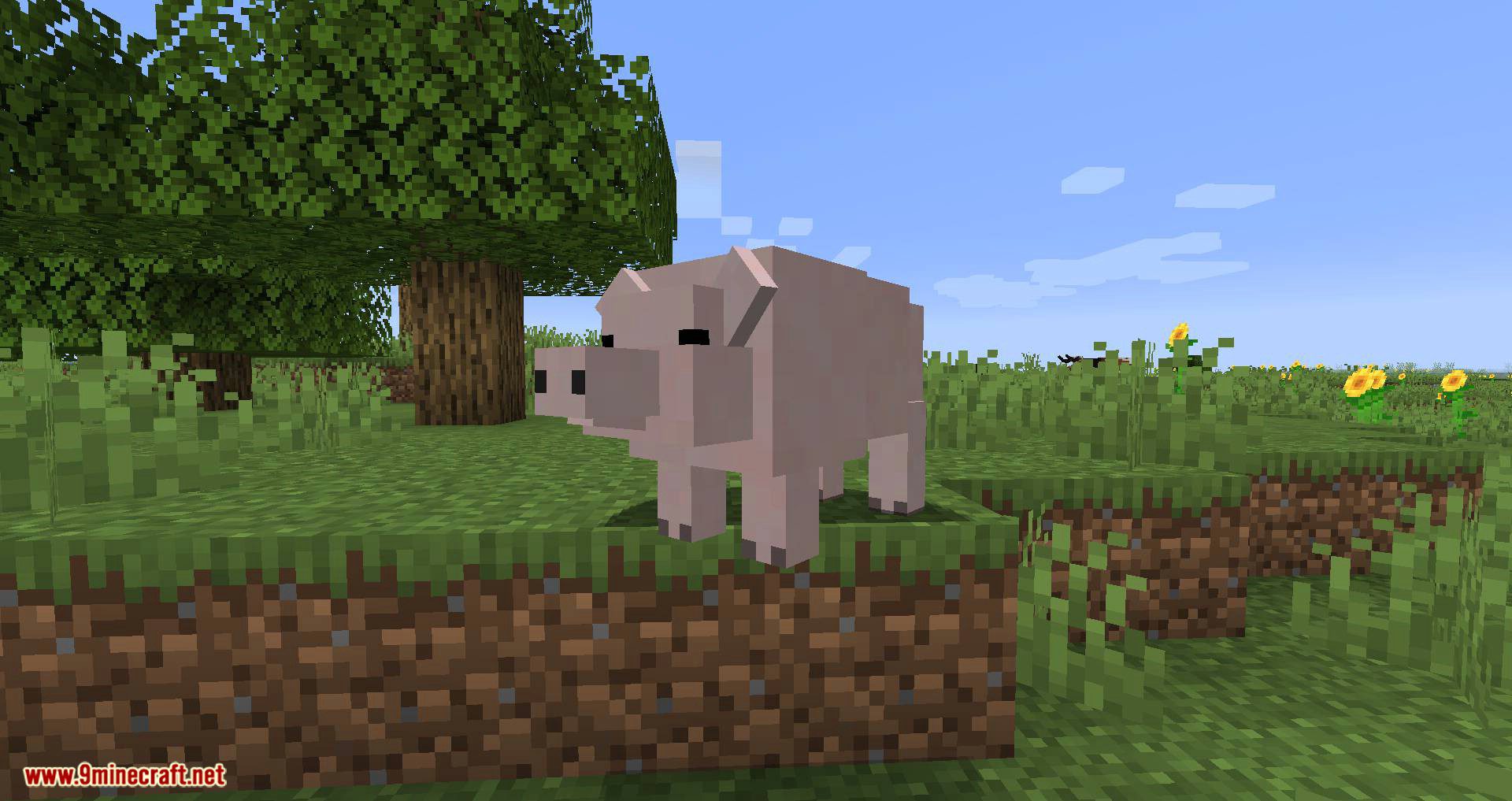
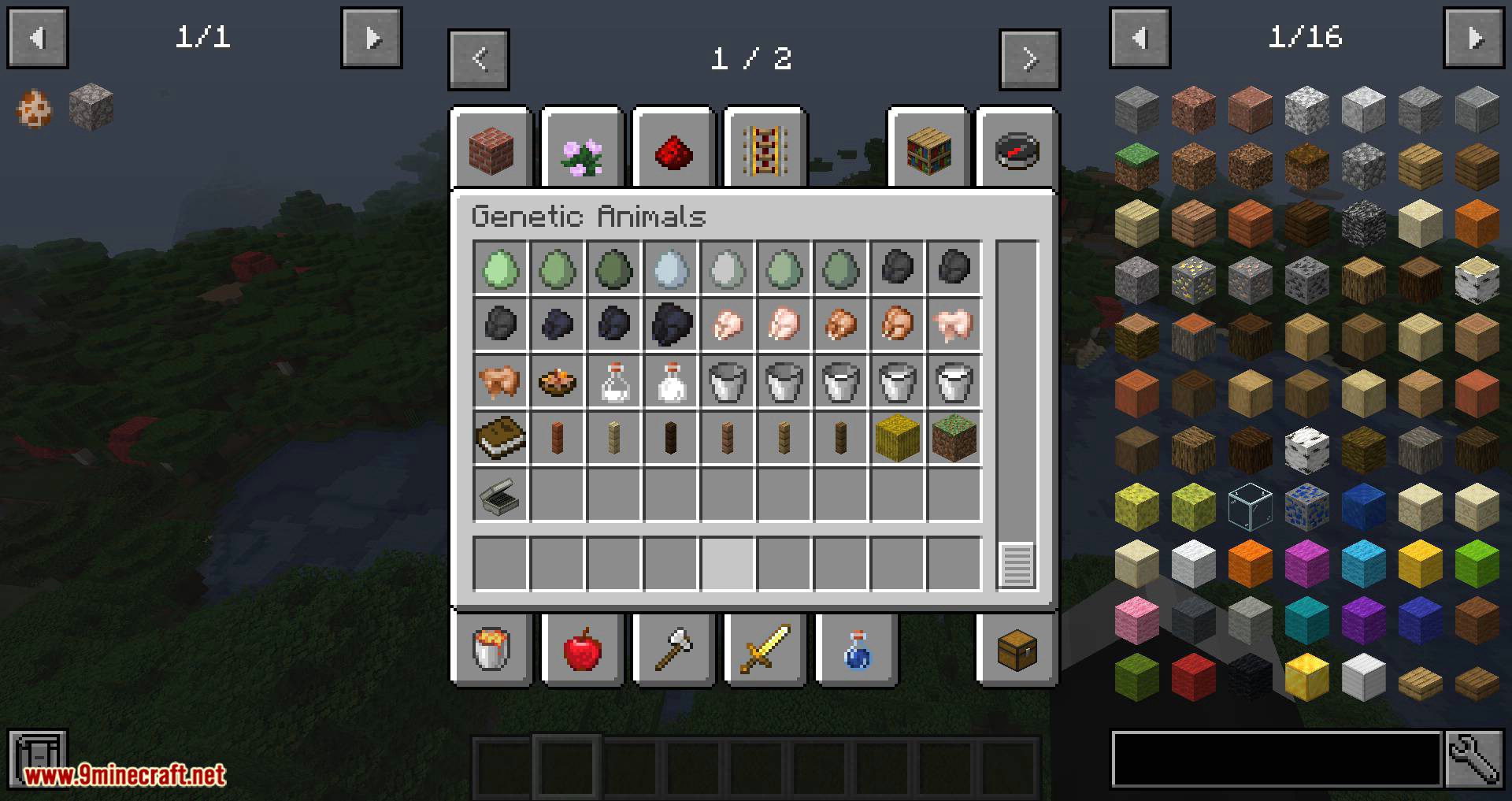
How to use:
- To get started with genetic animals, simply explore the world! By default, vanilla animal spawns are replaced with their genetic variants. To start with breeding, you will need to find an adult male and female (or just any 2 if omnigender is enabled in the config) animal of the same species and breed them using their breeding food item. If the animal is a mammal they will fall pregnant rather than instantly spawning a baby. If they are a chicken they will lay a fertilized egg which can be thrown to hatch it. Sea turtles and axolotls will lay clutches of eggs in the right conditions that hatch on their own over time. Once the animal is born it will grow slowly over time rather than instantly, this can be sped up by enabling the config option that allows feeding to age/grow animals.
- You can view information like gender, pregnancy progress, hunger, age, and more in each animal’s GUI. The GUI can be accessed by crouch + right-clicking on an animal.
- Villages will have a few pure breeds per village, explore the world to find more breeds. Animals found in the wild will tend to have traits adapted for their environment or traits that are just endemic to the biome. In an upcoming release animals found in the wild will be much likely to be fearful of or aggressive to players, while village animals will remain docile. The Wandering Trader will also start selling more docile and unique animals.
- Find animals you like in villages and in the wild and keep the best ones for breeding the next generation, if you use your favorites for breeding they will produce offspring that share their traits and occasionally you will get new animals born that have your favorite traits from multiple ancestors.
Requires:
How to install:
Click the following link to view details: How to Install Mods for Minecraft Java Edition on PC: A Beginner Guide
Genetic Animals Mod (1.20.1, 1.18.2) Download Links
For Minecraft 1.13.2
Forge version: Download from Server 1
For Minecraft 1.14.4
Forge version: Download from Server 1
For Minecraft 1.15.2
Forge version: Download from Server 1
For Minecraft 1.16.5
Forge version: Download from Server 1
For Minecraft 1.17.1
Forge version: Download from Server 1
For Minecraft 1.18.2
Forge version: Download from Server 1
For Minecraft 1.20.1, 1.20
Forge version: Download from Server 1 – Download from Server 2


 0
0  January 5, 2025
January 5, 2025 
